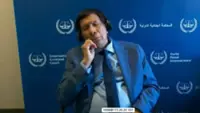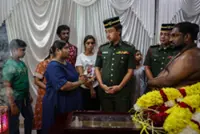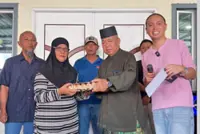In the heart of Sabah's lush rainforests, Amaziasizamoria Jumail is redefining not just what it means to be a woman, but also a Malaysian indigenous Sabahan (Orang Asal), in science.
At 35, this environmentalist, researcher and Merdeka Award recipient isn't just restoring forests; she's breaking barriers and inspiring future generations.
This International Women's Day, StarLifestyle highlights three high-achieving young Malaysian women - including Amaziasizamoria - who aren't just trailblazers in their respective fields, but are dismantling traditional gender barriers.
As a research officer at the Danau Girang Field Centre (DGFC) and a PhD student at Cardiff University in Britain, Amaziasizamoria is at the forefront of rainforest restoration in Malaysia.
Her work on the Regrow Borneo project in Sabah's Kinabatangan floodplain focuses not just on replanting trees, but rebuilding ecosystems.
But her journey extends far beyond Malaysia's borders. A recent attachment at Universidad Autonoma del Estado de Morelos (UAEM) in Mexico has allowed her to collaborate with international experts, drawing global insights for local solutions.
Her passion for environmental conservation, she says, stems from a personal experience.
"Growing up in Kota Belud, surrounded by Sabah's natural beauty, I saw firsthand the impact of deforestation and habitat degradation.
"I knew conservation alone wasn't enough. We need active restoration to bring these ecosystems back, not just for biodiversity, but for the communities that depend on them," she says.
This harsh reality solidified her mission: to restore ecosystems in ways that are effective, evidence-based and sustainable.
This recognition not only validated her hard work but also provided her with a platform to inspire other women and amplify their voice in conservation.
The Regrow Borneo project, Amaziasizamoria says, is an initiative launched in 2019 to restore degraded forests in Sabah.
"Unlike conventional tree-planting projects, Regrow Borneo uses a science-backed, ethical approach that benefits both the environment and local communities.
"Her research focuses on evaluating restoration success through key indicators of forest structure, biodiversity and ecological functions like carbon sequestration.
"It's not just about planting trees," she explains. "It's about bringing back ecosystems that can sustain life and benefit communities economically and socially."
Her stint in Mexico provided new perspectives, allowing her to learn from international models of tropical forest restoration. This cross-border collaboration is vital for tackling global environmental challenges, especially between biodiversity hotspots like Malaysia and Mexico.

Paving the way
As a Malaysian indigenous Sabahan woman in science, Amaziasizamoria is determined to pave the way for other women and girls. She knows firsthand the societal pressures that women face, from balancing family responsibilities to challenging cultural expectations.
Amaziasizamoria speaks openly about the glass ceilings that exist in environmental science, a barrier often built by societal expectations and traditional gender roles.
"There's still the perception that women aren't suited for tough, physical work. There's this idea that women should eventually step back for their family," she says.
But instead of seeing this social construct as a barrier, she uses it as motivation to keep pushing forward.
She advocates institutional changes that allow women to thrive, such as flexible work arrangements, family-friendly research facilities, and better representation in leadership roles.
Amaziasizamoria shares that while her fieldwork and academic responsibilities do keep her away for long stretches, her supportive husband and family help her balance her passion and family commitment.
"I want to inspire young women to believe they can be scientists, leaders and changemakers," she says. "My work is not just about restoring ecosystems, but planting hope for the future.
"Her advice to young women aspiring to pursue science is this: "Be passionate, stay determined and never let societal expectations define your path. You belong in this space just as much as anyone else."






